Imran Awan is deputy director of the Centre for Applied Criminology at Birmingham City University. He is co-editor of “Policing cyber hate, cyber threats and cyber terrorism,” and “Extremism, Counter-terrorism and Policing.” The views expressed in this commentary are solely his.
Whether it’s Mohammed becoming the most popular baby name, or one in 10 babies in England being Muslim or the fact that halal meat is being served in Pizza Hut, a Muslim story always tends to generate more heat than light.
Indeed, Islamophobia is often perpetuated by fear and a sense that Muslims are taking over our jobs, our homes and our lives, thus leading to a polarizing society and the so-called clash of civilizations.
Also Read: The Forty-Four-Days of Glory: Azerbaijan’s Struggle for Justice and Peace
And it’s common to see issues such as the name of Mohammed being used by the far-right into vitriolic hate against Muslims. Take for example the Daily Mail headline in January 2014: “One in 10 babies in England is a Muslim: Those practising the religion ‘could soon outnumber actively worshipping Christians.'” The article, which was accompanied by an image of two Muslim women wearing the face veil, showed this pervading sense of online anti-Muslim hate emerge with comments such as: “Surprise, surprise, ban the burka now before its too late!!!!!!!!!!!!!!!!!!!!!!!!!!!!!!” and “This has to stop this is a Christian country the next thing sharia law.”
Improving media practices and media responsibility on portraying and reporting fairly on Islam and British Muslims, without bias or discrimination or intent to incite anti-Muslim prejudice, is important. The media must provide a more responsible, objective and proportionate way of reporting on stories.
Unfortunately, though, the stories above are not isolated. In The Sun last year an article entitled, “Ramadan a ding-dong,” again provided a sensationalized and biased viewpoint that seeks to undermine all Muslims and portray Islam in a negative light. As a result, we are seeing British Muslims as a group suffer as a result of bad journalism that fuels extremist and far-right fringe groups such as Anjem Choudary and Muslims for Crusades.
Sadly, stories such as these help to create an atmosphere that has demonized Muslims and fueled an anti-Muslim narrative. Indeed, such reporting and representation of British Muslims also helps create the framework for the “othering” of communities and in particular may influence people’s perceptions of Muslims, especially when combined with lazy journalism that fails to correctly represent the true facts of each case.
Also Read: Palestine Solidarity Month: A Collective Movement for Al-Aqsa and Palestine’s Freedom
Let’s not forget, for example, the story from 2010, when windows were being covered up at a central English leisure center. The Daily Mail headlined its story: “Swimmers plunged into dark after council covers swimming pool windows ‘to protect Muslim women’s modesty.” The council revealed later though that the requests to black out the windows had not come solely from the Muslim community.
And we also know from previous studies looking at media coverage about Muslims, in particular post 9/11, that the weight of news stories — even if individually factually accurate — often stereotypes Muslims in an overwhelmingly negative light.
For example, a study conducted by academics at Cardiff University found that the majority of news coverage post-9/11 about Muslims was negative. Their research into media coverage of British Muslims found that at least two-thirds of newspaper articles were focused around stories on terrorism.
These stories often used the words such as “militancy” and “radicalism” to depict Muslims in an overtly negative fashion and were a product of a wider anti-Muslim prejudice which they found across British newspapers. Interestingly, they also found that common adjectives used to describe Muslims included the words “‘radical,” “fanatical” and “fundamentalist.”
Also Read: Hassan al-Turabi: A Controversial Thinker from Sudan
So whether it’s getting stories factually incorrect or describing Muslims as a security threat, there is clearly a backlash against Muslims online and offline with threatening comments that are both extremely inflammatory and promote Islamophobia.
This negativity is framed within the construct that Muslims are dangerous people, and creates a “them vs. us” mentality that can be highly damaging for community relations. Now is the time for action to reverse this trend, and as Mehdi Hasan suggests “sanctions for dishonest and demonizing press coverage of Muslims” might be one way to ensure that we start to see a balanced coverage that does not demonize or stereotype Muslims.(Poo9/R03)
Mi’raj Islamic News Agency (MINA)
source: CNN
Also Read: Who Exactly is the RSF Group Shaking Sudan?





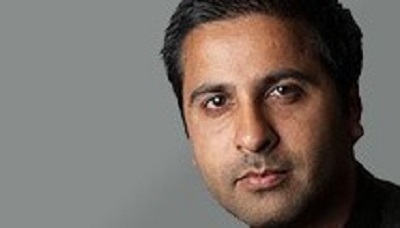


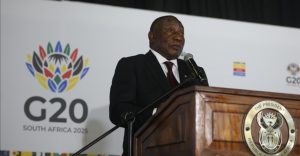




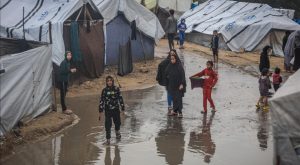

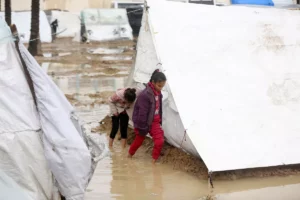

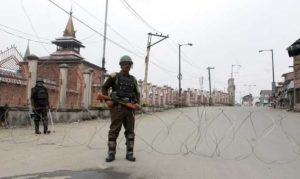
![French President Emmanuel Macron in Berlin, Germany on March 15, 2024 [Halil Sağırkaya – Anadolu Agency]](https://en.minanews.net/wp-content/uploads/2024/10/Screenshot_2024-10-22-20-57-45-59_40deb401b9ffe8e1df2f1cc5ba480b12-300x193.jpg)
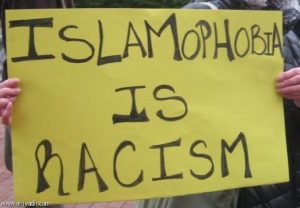

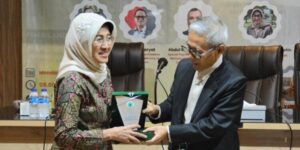











 Mina Indonesia
Mina Indonesia Mina Arabic
Mina Arabic